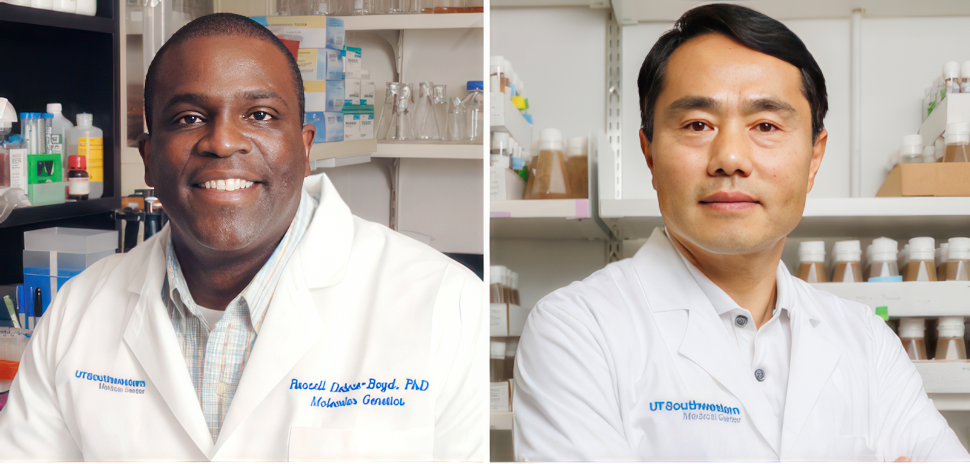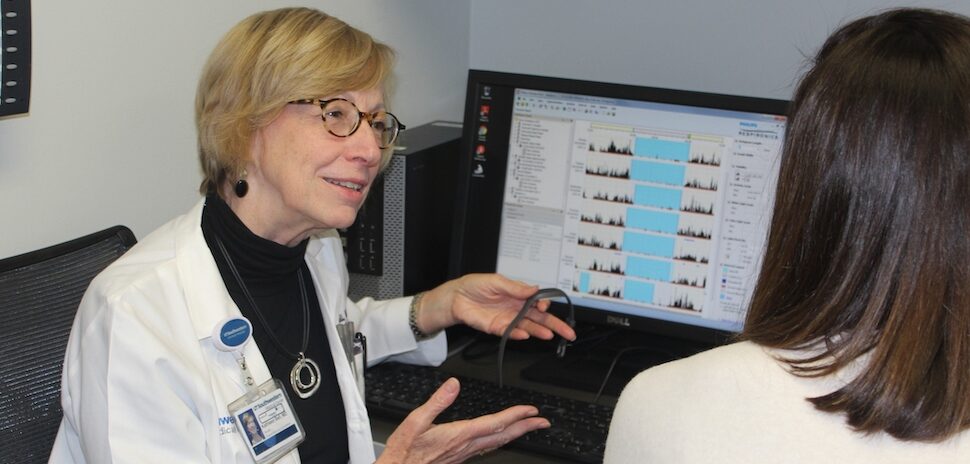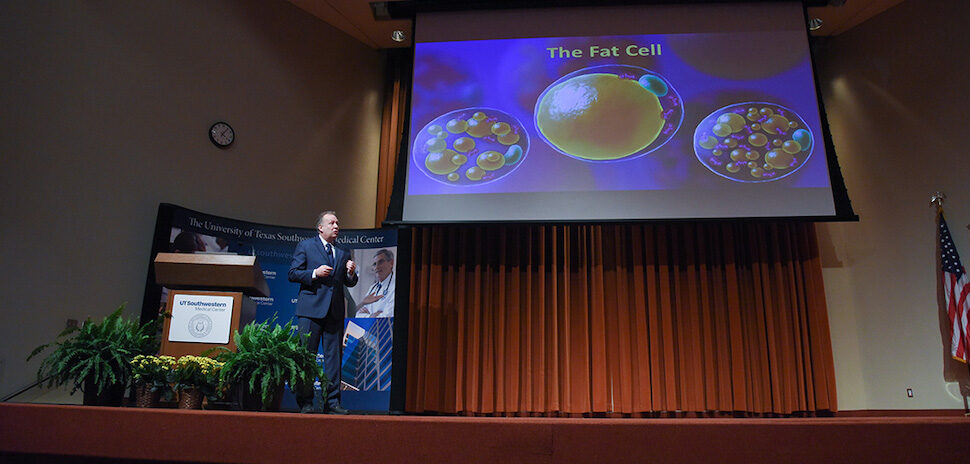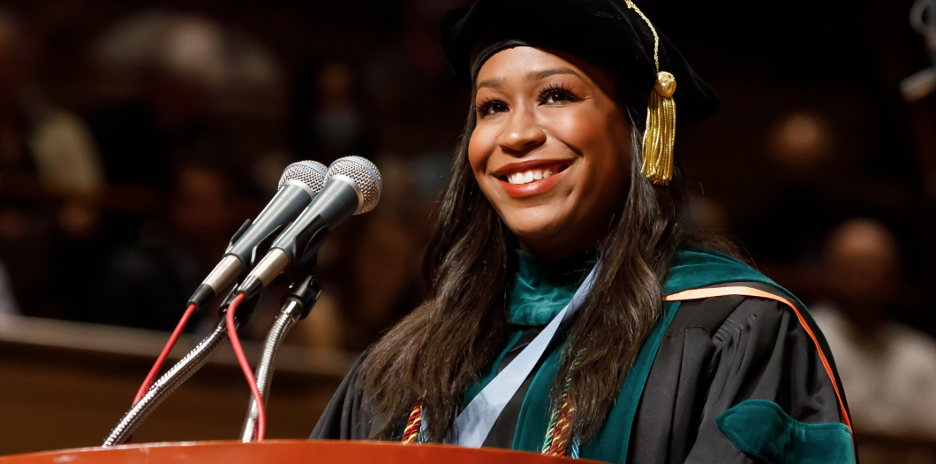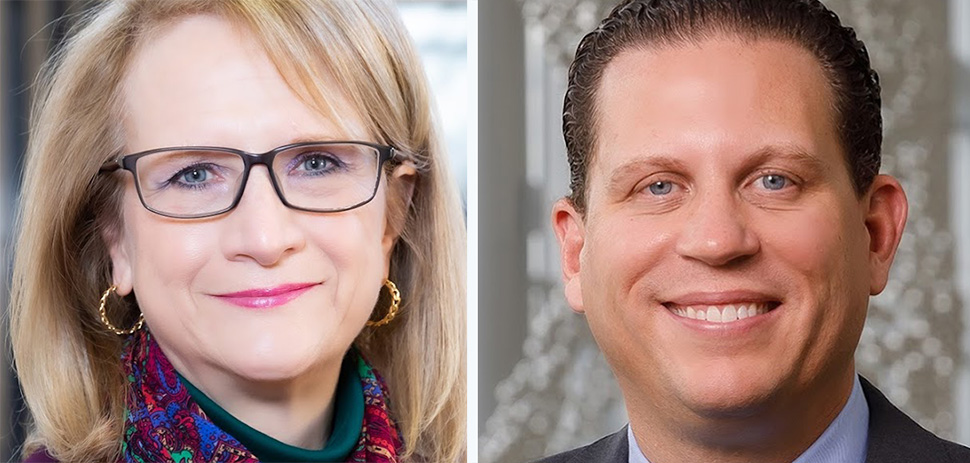Two more UT Southwestern Medical Center scientists — one in the field of molecular genetics and the other in physiology — have been elected to the National Academy of Sciences, one of the highest honors for American scientists.
Russell DeBose-Boyd, Ph.D., professor of molecular genetics, and Duojia Pan, Ph.D., chair of physiology and a Howard Hughes Medical Institute Investigator, were elected by their peers in recognition of the importance of their scientific discoveries, UT Southwestern said.
DeBose-Boyd discovered the pathway by which sterol and nonsterol isoprenoids combine to regulate the degradation of HMG-CoA reductase, basic mechanisms that inform the prevention and treatment of heart disease, UT Southwestern said.
Pan identified the “Hippo” pathway of intracellular signaling, which plays important roles in the determination of organ size, tissue regeneration, and tumorigenesis, the medical center said.
“The elections of Dr. DeBose-Boyd and Dr. Pan to the National Academy of Sciences acknowledge the pioneering contributions they have made, respectively, to advance our understanding of cholesterol synthesis and statin resistance, and tumorigenesis and the use of mTOR inhibitors in the treatment of tumors in the brain and other systems,” UT Southwestern President Daniel K. Podolsky, M.D., said in a statement. “This high honor is a reflection of scientific excellence and the impact of these outstanding investigators.”
DeBose-Boyd and Pan are among 120 new U.S. and 23 nonvoting foreign members announced Tuesday, UT Southwestern said. With their elections, UT Southwestern said it now has 26 faculty who are members of the National Academy of Sciences, more than any other institution in Texas.
“Today’s news is a testament to the caliber and expanse of science at UT Southwestern and serves as an inspiration to new generations of trainees and scientists who will continue the long tradition of discovery that we embody,” W. P. Andrew Lee, M.D., EVP for academic affairs, provost, and dean of UT Southwestern Medical School, said in a statement.
Breakthroughs in the regulation of cholesterol
DeBose-Boyd is the Beatrice and Miguel Elias Distinguished Chair in Biomedical Science.
UT Southwestern said that the DeBose-Boyd laboratory focuses on the regulation of HMG-CoA reductase, which produces mevalonate, a crucial intermediate in the synthesis of cholesterol.
Inhibitors of HMG-CoA reductase, collectively called statins, have revolutionized the treatment of high blood cholesterol levels. Statins trigger effects that result in the decrease of LDL cholesterol, thereby reducing the incidence of heart attacks, UT Southwestern said.
The deficiency in mevalonate-derived products that accompany statin therapy leads to a compensatory increase in HMG-CoA reductase protein, resulting in the need for higher doses of the drug to maintain cholesterol-lowering effects, UTSW said. Understanding the mechanisms for this compensatory increase in HMG-CoA reductase provides a foundation for the development of novel therapies that enhance the therapeutic effectiveness of statins, UT Southwestern said.
DeBose-Boyd joined UT Southwestern in the laboratory of Nobel Laureates Joseph L. Goldstein, M.D., and Michael S. Brown, M.D., as a fellow of the Jane Coffin Childs Memorial Fund for Medical Research.
He joined the UT Southwestern faculty in 2003 and received an Established Investigator Award from the American Heart Association in 2005 and was appointed a Howard Hughes Medical Institute Early Career Scientist in 2009.
In 2022, DeBose-Boyd was recognized by the American Society for Biochemistry and Molecular Biology with the Avanti Award in Lipids for outstanding research contributions in that field. He also mentors students in Biological Chemistry, and Cell and Molecular Biology in the UT Southwestern Graduate School of Biomedical Sciences.
Discovering pathways controlling organ size and tumor growth
Pan is the Fouad A. and Val Imm Bashour Distinguished Chair in Physiology.
UTSW said the Pan laboratory investigates the molecular mechanisms of growth control and tissue homeostasis and that Pan is best known for foundational discoveries of the Hippo signaling pathway that controls organ size in animals.
Using Drosophila as a model, his lab made a series of discoveries that defined, in a stepwise manner, the key molecular events in the Hippo signaling pathway. His team further established a critical role for that pathway in controlling mammalian organ size, regeneration, and tumorigenesis, UTSW said.
The Pan lab also explained the molecular function of the Tsc1 and Tsc2 tumor suppressor genes, linking Tsc1/Tsc2 to Rheb and TOR signaling.
That work provided the key molecular insight for the use of mTOR inhibitors in the treatment of tuberous sclerosis, a genetic disease that can lead to tumor development in the brain, spinal cord, and organs, UTSW said.
The lab’s current efforts are aimed at better understanding the composition, mechanism, and regulation of the Hippo pathway, clarifying its physiological roles in normal development and diseases, and discovery of chemical probes that target it.
Last year, Pan received the Passano Award related to his Hippo pathway discoveries.
Pan was named a Howard Hughes Medical Institute Investigator in 2008 and a Fellow of the American Association for Advancement of Science in 2012 and was awarded the Paul Marks Prize for Cancer Research in 2013.
He was named the fifth chairman of physiology at UT Southwestern in 2016. Pan mentors students in genetics and development and disease for the UT Southwestern Graduate School of Biomedical Sciences.
![]()
Get on the list.
Dallas Innovates, every day.
Sign up to keep your eye on what’s new and next in Dallas-Fort Worth, every day.

